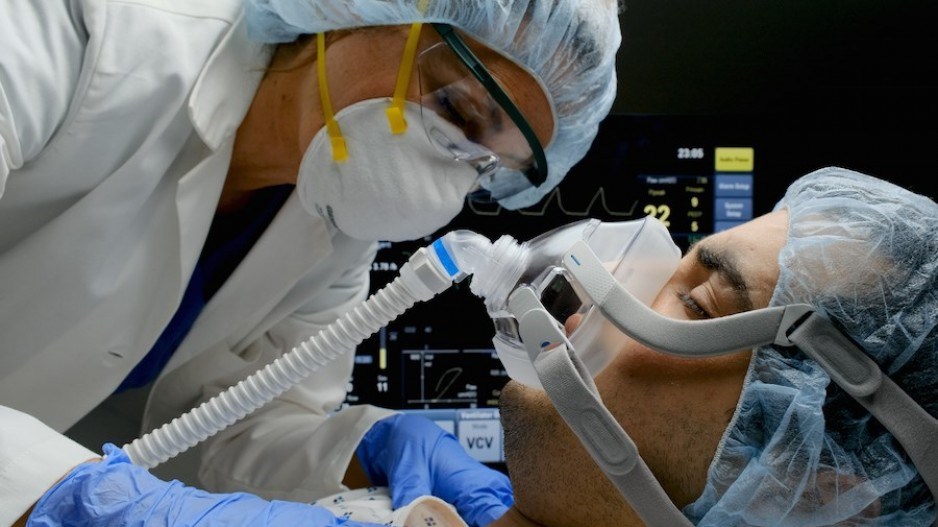B.C.'s number of COVID-19 patients in hospitals soared to 646 today, as the government changed the way that it counts those hospitalizations.
Previously, the government only counted COVID-19 patients who originally went to the hospital seeking treatment for the disease, and had not yet gone 10 days after first exhibiting symptoms, which is when they would be considered no longer infectious.
People who caught COVID-19 while already in hospital were not previously included in hospital counts, nor were those who remained in hospital after being deemed no longer infectious.
Of those COVID-19 hospital patients, 95 are in intensive care units (ICUs) – seven fewer than yesterday.
Some good news is that Provincial Health Officer Dr. Bonnie Henry said today that her read of the data is that and that hospitalizations are likely to peak in the next couple weeks.
It is unclear what that will mean in terms of her health orders.
“We are in the process of looking at what is it that we need to do and what can we do to change these things and look at the restrictions that are in place, and are they needed anymore," she said this morning. "I'll have more to say about that on Tuesday."
The disease that spawned a global pandemic continues to have severe outcomes, with six more British Columbians dying from COVID-19 in the past day. That raises the province's pandemic death toll to 2,468.
The number of COVID-19 patients in hospitals is a key indicator of how bad the fifth wave of the disease is becoming in B.C., because data for new case counts and active infections are seen by even health officials as unreliable. That is because the province's system for testing the general public has been strained. During the holiday season, Henry told vaccinated people who have mild symptoms to self-isolate and not burden the province's testing centres, which were seeing multi-hour waits.
Nonetheless, 2,275 British Columbians newly tested positive for COVID-19 in the past day. The province's number of active infections had been steadily rising, but fell for the second day in a row, to 25,943.
Of the 293,521 known COVID-19 infections in the province since the first case was detected in January 2020, 251,846, or 85.8%, are deemed by the government to have recovered.
Older British Columbians have shown to be vulnerable to more serious infections, and deaths, so it is concerning that health-care facilities, seniors' care homes and retirement communities had been increasingly developing outbreaks.
B.C. has 46 such facilities with ongoing outbreaks, with is seven fewer than yesterday, but 43 more than a month ago.
One new health-care facility outbreak is at Royal Jubilee Hospital in Victoria.
Not fully vaccinated people comprise about 19.3% of B.C.'s total population but they were responsible for 21.5% of cases between Jan. 6 and Jan. 12. They also were responsible for 34.2% of hospitalizations between Dec. 30 and Jan. 12.
The B.C. government estimates that 89% of eligible British Columbians, older than five years, have had at least one vaccine shot, while 83.3% of that eligible population is fully vaccinated with two jabs.
Provincial data show 4,436,446 B.C. residents have had at least one dose of vaccine, while 93.6% of those, or 4,152,386, are considered fully vaccinated with two doses.
The B.C. government last year estimated that the . Hence, Glacier Media's calculation is that 86% of B.C.'s total population has had at least one dose of vaccine, and 80.7% of the province's total population has had two doses. •



